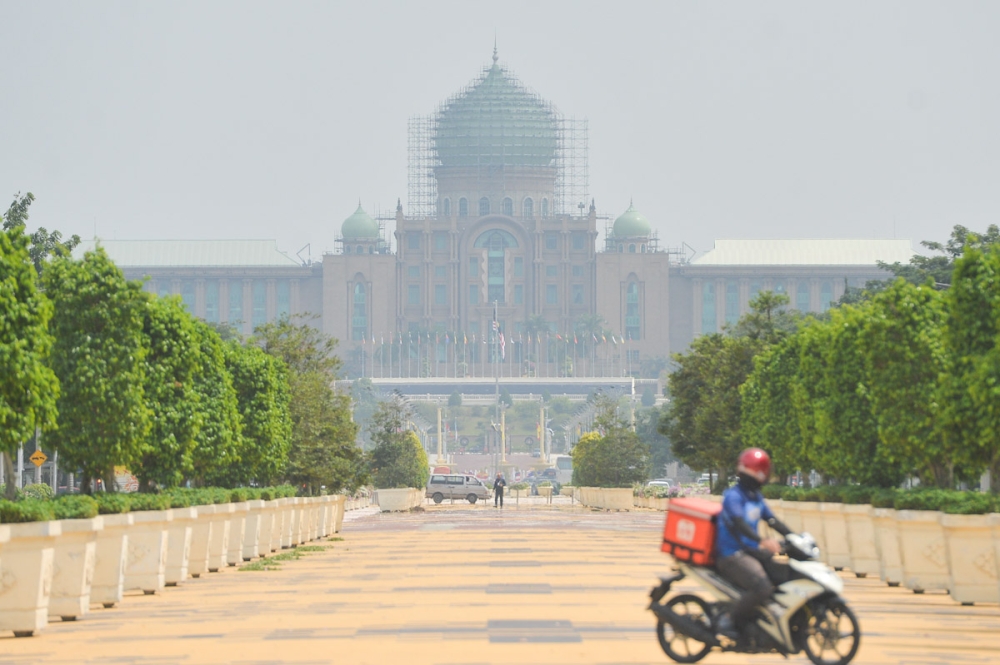DECEMBER 14 — More than 60 years ago in 1960, the great scholar, observer, popular teacher and good friend of Malaysia, the late Professor RH Hickling wrote:
“[C]ollective responsibility ... constitutes the most peculiar feature of what we call Cabinet government. All the Ministers are collectively responsible to Parliament, and if one of them refuses to accept the views of his colleagues, then he is expected to resign: for the Ministers stand or fall together.
“This is, in effect, an illustration of the principle of the rule of the majority, or what is sometimes called ‘government by consent’, in which those who disagree with the majority are nevertheless expected to accept their views.
“This, also, is the reason for the secrecy surrounding meetings of the Cabinet, and the brevity of Cabinet minutes, that is, the records of meetings of the Cabinet: for once policy has been decided by the Cabinet, it must be defended in Parliament by all members of the Cabinet.” (See An Introduction to the Federal Constitution, Federation of Malaya Information Services, 1960)
A contemporary scholar Hilaire Barnett, whose book Constitutional and Administrative Law has consistently provided readers with a thorough understanding of constitutional law, explains the two principal sub-rules that underlie collective responsibility.
The first rule is that, once an agreement is reached in Cabinet, all members of Cabinet are bound to speak in support of the decision. The second supporting rule is that records of Cabinet discussions are “absolutely secret”.
Why the second rule?
Barnett explains as follows:
“The knowledge that Cabinet records are protected by confidentiality, enhances the opportunity for Members of Cabinet to discuss matters freely, secure in the knowledge that their personal point of view, whatever the decision, will be protected from the public gaze.”
The secrecy of Cabinet discussions was, to Walter Bagehot, the “most curious point about Cabinet”. The English banker, journalist, editor, biographer, literary critic, economist, political analyst and well-remembered also as the author of The English Constitution, wrote in 1867:
“[S]o very little is known about [the Cabinet]. The meetings are not only secret in theory, but secret in reality. By present practice, no official minute in all ordinary cases is kept of them. Even a private note is discouraged and disliked.
“The House of Commons, even in its most inquisitive and turbulent moments, would scarcely permit a note of a cabinet meeting to be read. No Minister who respected the fundamental usages of political practice would attempt to read such a note ... No description of it, at once graphic and authentic, has ever been given.”

In Malaysia, secrecy and confidentiality of Cabinet discussions is not just a sub-rule of collective responsibility. It is provided for by legislation – that is, the Official Secrets Act 1972 (Act 88).
Section 2 of the Act defines “official secret” as any document specified in the Schedule and any information and material relating thereto and includes any other official document, information and material as may be classified as “Top Secret”, “Secret”, “Confidential” or “Restricted”, as the case may be, by a Minister, the Menteri Besar or Chief Minister of a State or such public officer appointed under section 2B.
The Schedule includes Cabinet documents, records of decisions and deliberations including those of Cabinet committees. These are therefore official secrets.
So how come Kota Bharu MP had a document entitled “Minutes of Meeting of the Cabinet on Wednesday 23 May 2018” which he shared in the Dewan Rakyat on December 12 when he stood to debate the Report of the Royal Commission of Inquiry (RCI) on Batu Puteh, Middle Rocks and South Ledge?
The former minister told the Dewan that someone who he did not know and had not met had placed the document at his office a few days back. (See Hansard, Vol 69 12 December 2024 at pp 157-158)
Section 8 of the Act provides for the offence for wrongful communication, retention, receipt and possession of official secrets. It is punishable with imprisonment for a term not less than one year but not exceeding seven years.
* This is the personal opinion of the writer or publication and does not necessarily represent the views of Malay Mail.





















